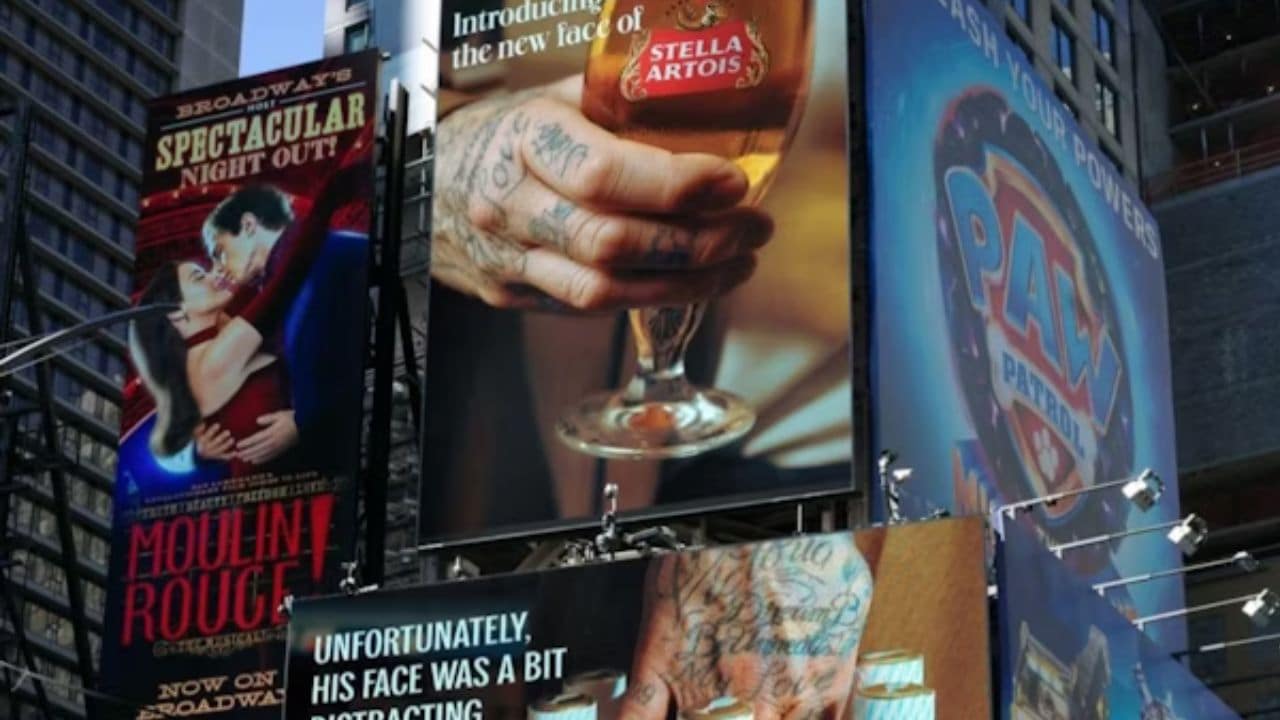The intersection of celebrity and branding has always been a compelling space, offering brands a powerful tool to captivate audiences. Yet, the mere presence of star power is but a single facet in a multi-dimensional brand strategy. As the landscape of consumer engagement continues to evolve, so too must the strategies brands employ to leverage celebrity endorsements effectively. Today’s savvy consumers crave authenticity, a deeper connection to the brand story, and a sense of genuine interaction with the stars they admire.
Let’s look at how modern brand storytelling is being shaped with creativity, topical relevance, and cutting-edge technology fused with celebrity power to forge indelible experiences for a consumer spoilt for choice!
Celebrity Endorsement with a strategic twist
Gone are the days of generic celebrity endorsements plastered across billboards. Modern brands are crafting more nuanced campaigns that go beyond simply showcasing a famous face. Stella Artois’ latest collaboration with global icon David Beckham offers a strategic blueprint for celebrity endorsement that prioritizes brand ethos over mere star power. In a departure from traditional celebrity-centric campaigns, Stella’s print ads ingeniously feature Beckham as a hand model, while outdoor ads spotlight his iconic tattoos. This approach not only captures attention but also emphasizes the shared experience and authenticity associated with enjoying a Stella Artois. Closer home, MakeMyTrip’s latest IPL campaign takes a novel approach to ‘star power’ by featuring Jackie Shroff, Prabhu Deva, and Shankar Mahadevan without revealing their faces. Each film in the campaign leverages the unique style, voice, and attitude of these celebrities to create instant recognition among viewers.
These campaigns serve as a masterclass in leveraging celebrity influence to enhance brand messaging, highlighting the importance of authenticity, shared values, and humour in cutting through the clutter of conventional advertising.
From Wit to Win: The Growing Role of Humour
Humour remains a powerful tool for brand engagement, and a well-placed joke can go a long way in creating a memorable connection. Tide’s collaboration with Shah Rukh Khan is a prime example, leveraging the star power of Bollywood’s ‘King Khan’ to create a whimsical Instagram Reels post featuring an oversized bag of Tide greeting fans atop the iconic Mannat. This unconventional approach eschews the traditional celebrity spotlight in favour of a more playful and engaging narrative.
Similarly, Uber Eats showcased the magnetic charm of humour in its Super Bowl campaign featuring David and Victoria Beckham. The campaign cleverly employed wit and satire, with the Beckhams playfully teasing their own upcoming ad while recreating an iconic moment from their Netflix special “Beckham.” This meta-narrative not only entertained viewers but also sparked conversations, illustrating the power of humour to resonate deeply with audiences and elevate brand messaging.
Celebrities as Content Powerhouses
Beyond strategic endorsements and humorous campaigns, celebrities are now playing a crucial role in powering a brand’s content engine. Today’s social media-savvy stars are adept at creating engaging content that resonates with their audience, and by extension, the brand they represent. This shift empowers them to act as brand advocates, fostering genuine conversations and connections with consumers. Actor Ryan Reynolds’s humorous approach to marketing for Mint Mobile is a great example here. Reynolds’ self-deprecating humor and witty social media interactions have not only boosted brand awareness for Mint Mobile but have also garnered significant positive sentiment and online discussions.
The Technological Vanguard: AI and Beyond
The advent of artificial intelligence and advanced technologies has ushered in a paradigm shift in brand-consumer engagement. Leveraging AI, brands can now orchestrate personalized, celebrity-driven narratives at an unprecedented scale. This enables a level of customization and relevance that transcends conventional marketing paradigms. For instance, with the integration of cutting-edge AI technology, Max Life is elevating customer and seller experiences backed by our brand ambassador, Rohit Sharma. Our initiatives encompass end to end created- personalized videos, messages, and greetings for customers, fundamentally enhancing the audience’s interactions with the brand. Personalization also extends to the company’s valued sellers, who receive tailored greetings, messages, and specialized sales training support. Recognizing the long-term nature of life insurance relationships, these innovations aim to build stronger, lasting connections.
In synthesizing the elements of creativity, topical resonance, and technological prowess, brands can forge a potent formula for success in celebrity-led brand narratives. However, the pursuit of differentiation remains a critical, ongoing imperative. In an increasingly saturated marketplace, brands must continually innovate and redefine their value propositions to carve out distinctive niches. While celebrities and technology can serve as catalysts, it is the brand’s unwavering commitment to delivering differentiated experiences, exceptional value and resonant storytelling that will ultimately captivate and inspire consumers.
The author of the article is Rahul Talwar, Chief Marketing Officer, Max Life Insurance. Views expressed are personal.
